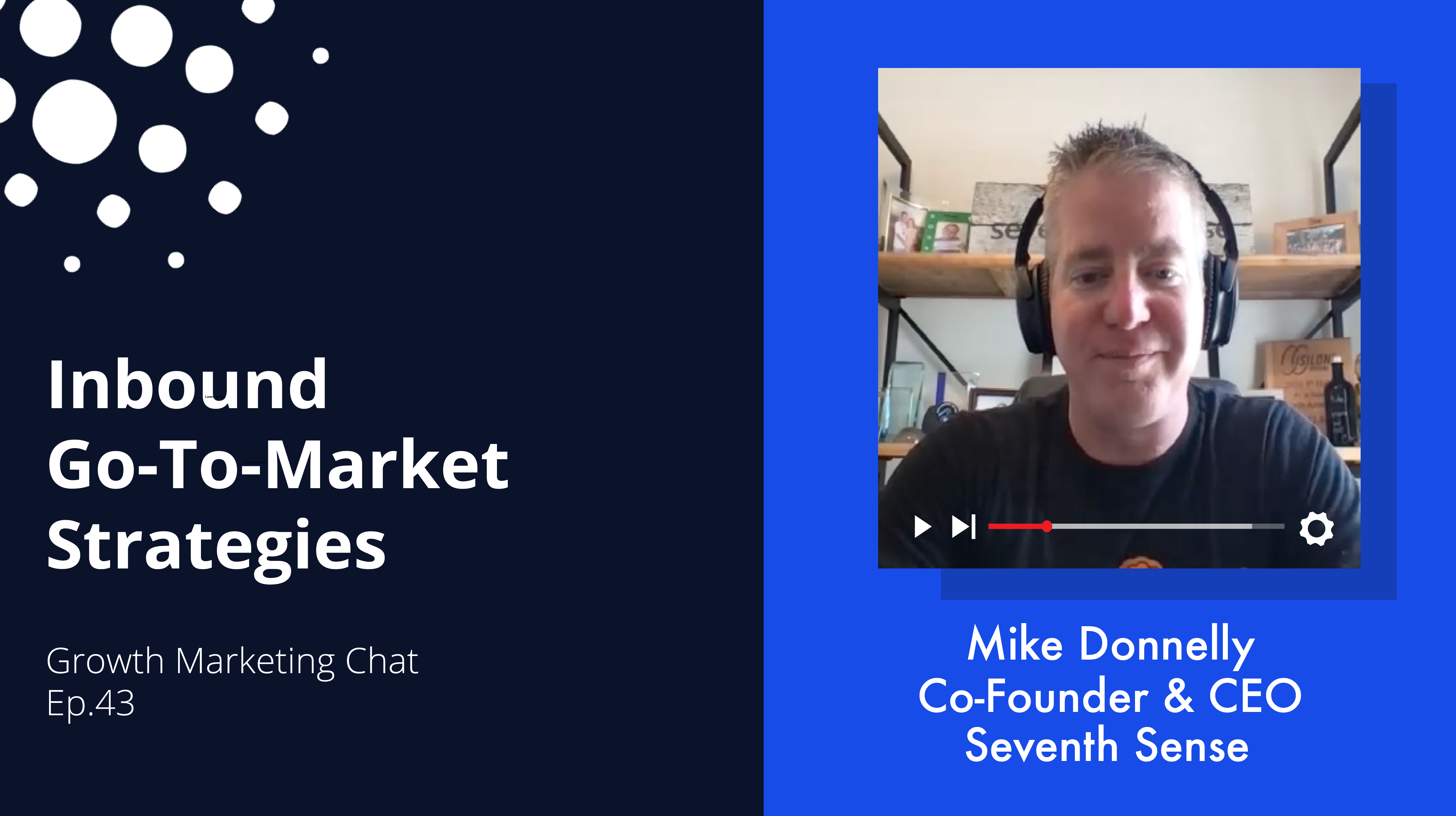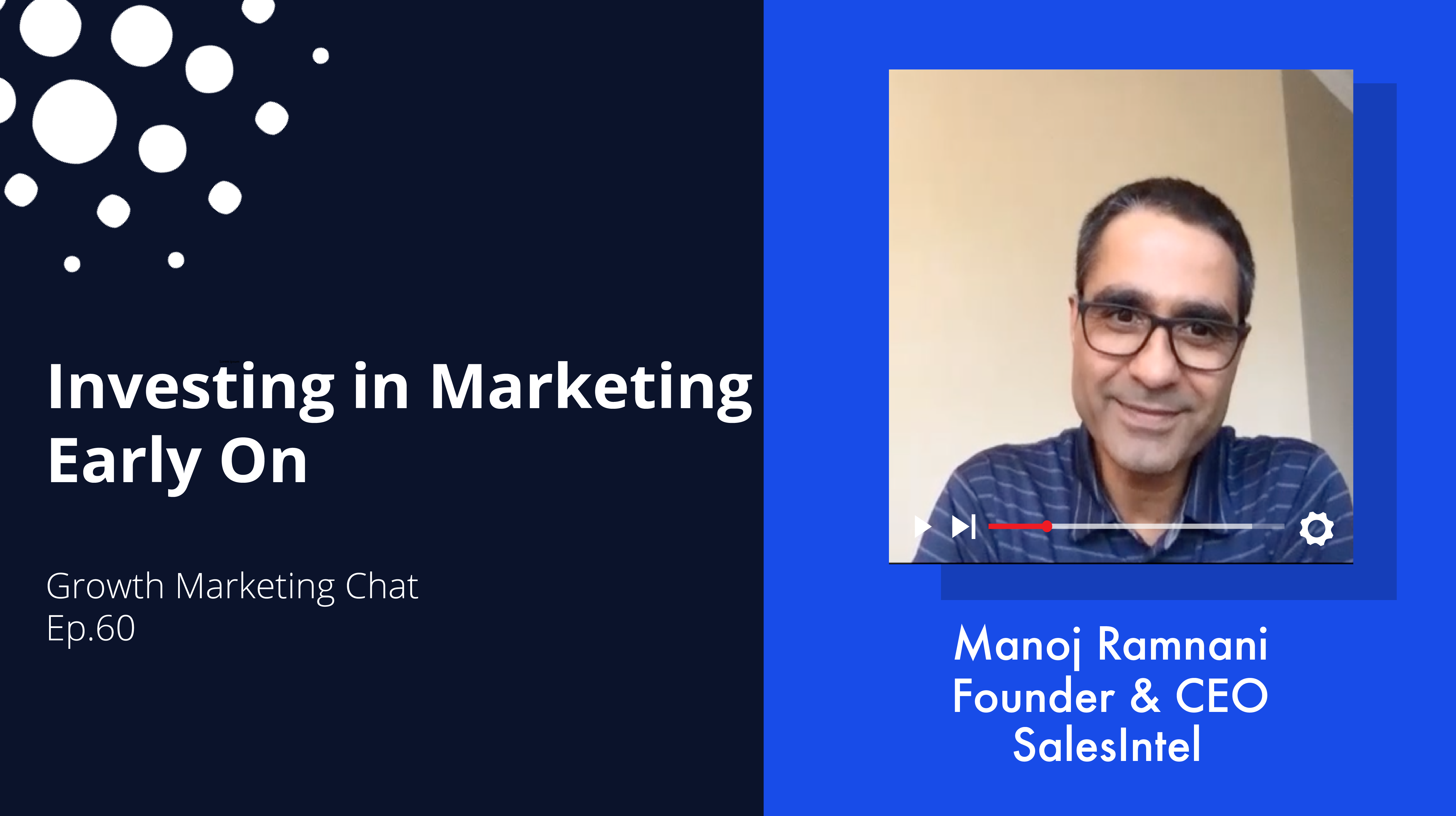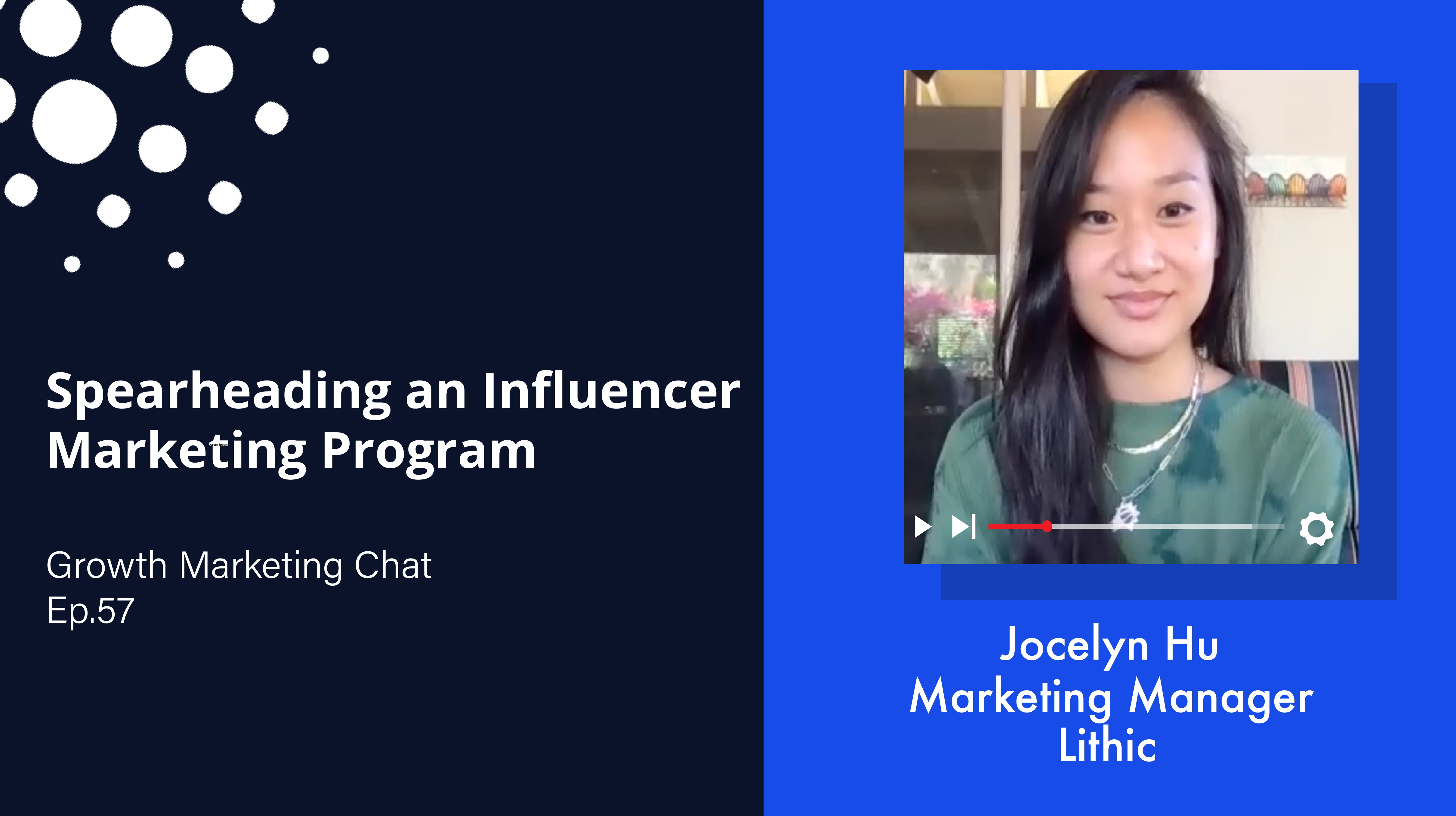Marketing a start-up, especially one that’s trying to carve out a unique space in the market, can be tricky. The marketing strategy has to be built from scratch, and it can be an intimidating undertaking.
Fortunately, there are many trailblazers who have succeeded in start-up marketing and are willing to share their wisdom. Today’s expert highlights the importance of good investors, fresh and clear perspectives, and consistent adaptability and awareness.
“I think [a] lesson learned [is] the value of good investors...that really add value over time, that open doors, make introductions, that you can turn to for advice, that you can text late at night when you have a question.”
Ways to Boost Your Start-Up Marketing
In this week’s Growth Marketing Chat episode, Bryan Colin, CEO of View Labs, discusses the top start-up marketing lessons he’s learned throughout his impressive career.
He touches on:
- The value of good investors
- Seeing opportunities in the market
- Why adaptability is so important
- How to stay aware and listen to others
By building on the lessons learned by others who’ve forged a path in start-up marketing, you can develop a unique and effective marketing strategy that will allow your start-up to grow.
Watch the full interview for more expert insight on what you need to build your start-up marketing from the ground up.
Video Transcript:
CAROLINE: Hi, welcome to Growth Marketing Chat. Today I am here with Bryan Colin. He's the CEO of View Labs, and I'm really excited to be chatting with him today. Bryan thank you for being here.
BRYAN: Thank you, it's a pleasure.
CAROLINE: Same, so before we dive in, can you tell us a little bit more about yourself and your company, and how you first came up with the concept?
BRYAN: Yeah, so the company was named VirtualAPT. We started the company about six years ago, been based in New York city the entire time. The idea was to be able to recreate the in-person experience digitally. So building autonomous robots to create video technologies, virtual tour type solutions. And that's been kind of the original vision that we've grown since then.
CAROLINE: Awesome. So can you tell us more about how your idea kind of evolved since you've created it, and how your company grew to where it's at today?
BRYAN: Kind of realized early on that the, both the hardware and the software that we wanted didn't exist. So we had to really build all of the core technology behind it all. And then we realized where the technology had its biggest natural advantages. And for us, large spaces is one of the things where we really don't have much competition. So for real estate large building, or large retail space or something like that, there's not a whole lot of other options that work for those kind of areas. So we moved away from doing kind of single family and started to do kind of large multi-family large commercial, and then expanded from the technology side into four additional technologies over time.
Based off of the robot, we have a mixed reality technology that allows us to place any object or animation in a photo realistic 360 space. You can stage an office, you can use it for space planning, architecture, interior design. And then we have a video conferencing app called 360 Meet, which we invented a way to eliminate latency and quality degradation from streaming video. And that's what we developed it for because people were sharing our videos and the quality wasn't good. Because Zoom or Teams or, all those platforms it's very choppy if you've seen it. And we created a way that it doesn't have those negative effects. Now for anybody that's doing any sort of collaborative video or presentations, it's just a better way of doing that.
CAROLINE: And there's a video on your website that kind of shows the difference, I think it's somebody like walking through a building. And when you see it with movement, the difference is like amazing.
BRYAN: Thank you.
CAROLINE: If you guys want to understand what Bryan is talking about, I encourage you to go check the website. It's pretty cool to see the difference between their technology and kind of what we're used to with Zoom. Well, thank you for walking us through this. So my last question for you is can you tell us about some lessons you've learned along the way since you started your company, and what's been the most exciting to learn throughout your journey?
BRYAN: I think lessons learned, it's a good question. The value of good investors. Having investors that really add value over time, that open doors make introductions, that you can turn to for advice that you can text late night when you have a question. Compared to somebody that's just writing a check, especially as the company is growing and changing over time and starting with a few employees to, over 40 and, there's lots of shifts and there's lots of skillsets that I need to learn. And that, as a company things change COVID hits. You have things that happen that you kind of have to have people around you that are really intelligent and not deep inside so that you can get their outside viewpoints. And then I would also say just seeing good opportunities, listening to clients, listen to the market. Where there's demand for stuff. We started building 360 Meet, our streaming platform when COVID hit because we realized that the complaints about. When people, owners or brokers or whoever wanted to share and the quality wasn't great.
So they ended up having to email or just have it up on the site, and they couldn't collaborate and do something together. We said, this is a really good opportunity. And as COVID hit, it's just gonna expand more and more. So that's really when we started developing it and, just keeping our eyes open for not hard pivots, but where to build on to.
CAROLINE: Right, I think it's something really interesting about your stories that it seems like everything that you've done has not been, so many companies like totally pivot, in your case it's really been like kind of a natural evolution from one step to the other. And it's pretty cool to hear.
BRYAN: Yeah, I think you have certain companies that do a complete pivot, and then some companies that expand. So for us it's expanding into other sectors where we have the most opportunity, the most demand, and the technology that we've built fits really well. We don't wanna be everything for everybody, but we wanna be able to, sell to whoever has demand for it. And even learning, where there's demand that we didn't understand,or we didn't think that there would be just by having regular conversations, by doing a demo. And then they're like, no, we actually really need this. You don't understand what our problems are because we don't know the inner workings of different companies in different sectors. So just by being aware and listening, leads to really good opportunities.
CAROLINE: Awesome. Bryan thank you so much. I think that was a great, thank you for spending the time and sharing your story with us.
BRYAN: Thank you so much, I really appreciate it.
CAROLINE: Same.





